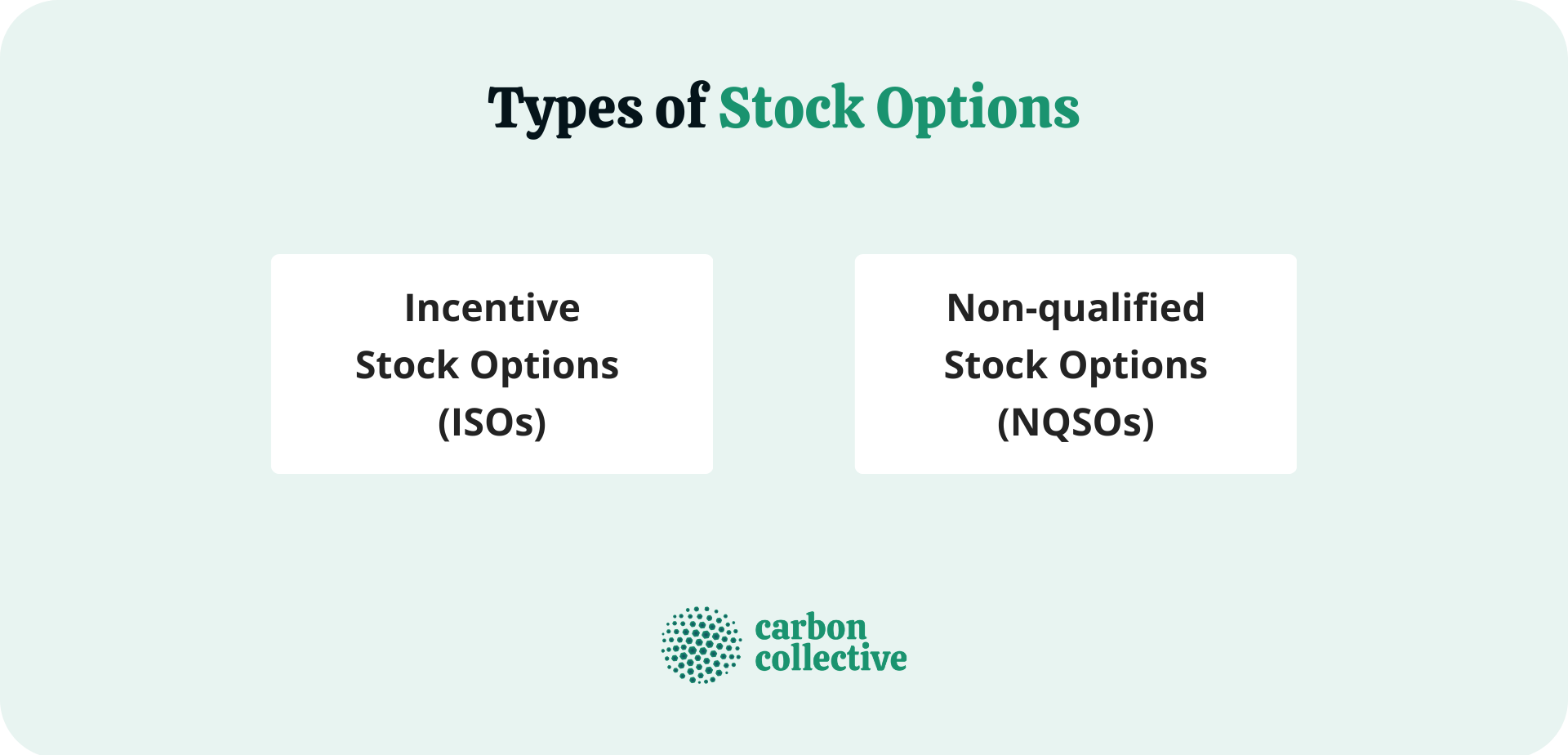Stock options are a type of equity compensation that allows employees to buy stock in the company at a set price, usually lower than the stock's current market value.
The stock options can be exercised at any time during the option period, typically set by the company. Employees can purchase stock at the end of their vesting period, which tends to last from three to five years.
Stock options have become a popular employee benefit because they provide employees with the potential to earn a lot of money if the company's stock price increases.
There are two types of stock options: incentive stock options (ISOs) and non-qualified stock options (NQSOs).
ISOs are only available to employees, while NQSOs are available to anyone. ISOs have tax benefits, while NQSOs do not.
How Does Stock Option Pricing Work?
Stock options are typically priced at the stock's current market value. The strike price is the price at which the stock can be purchased. The expiration date is when the option expires and can no longer be exercised.
The most important factor in stock option pricing is the stock's volatility. Volatility is a measure of how much the stock price fluctuates. The higher the volatility, the higher the stock option price.
Stock Option Granting and Vesting
Stock options are typically granted to employees at the time of hire or during a promotion. The number of stock options an employee receives typically reflects their position and salary.
The stock options vest over a period, typically between three and five years. After the stock options vest, the employee can exercise their option and purchase stock in the company at the strike price.
When Should You Exercise Your Stock Options?
You should exercise your stock options when the stock price is at its highest point during the option period.
For example, say that you have a stock option with a strike price of $50, and the stock price is currently $60.
If you exercise your option now, you will pay $50 per share and you will own 100 shares of the stock.
If the stock price increases to $70, you can sell your shares for a profit.
However, if the stock price decreases to $40, you will lose money.
Therefore, you should exercise your stock options when the stock price reaches its highest point during the option period.
Why Should You Consider Stock Options?
There are several reasons why you should consider stock options.
If you are an employer:
- Stock options can help attract and retain employees. Employees are often attracted to companies that offer stock options because it gives them the potential to earn a lot of money if the company's stock price increases
- Stock options can help you motivate and reward employees. If your company's stock price increases, employees who have stock options will be rewarded for their contribution to the company's success
- Stock options can help you align the interests of employees and shareholders. Employees who have stock options will be more likely to make decisions in the company’s best interests because they will benefit financially if the company does well
If you are an employee:
- Stock options can help you build wealth. If the stock price increases, you can sell your stock for a profit
- Stock options can provide you with financial security. If you are laid off or fired, you will still have the stock options that you can exercise and sell for a profit
- Stock options can help you diversify your investment portfolio. By investing in different companies, you can reduce your risk and increase your chances of making a profit
The Bottom Line
Stock options can be a great employee benefit. If you are an employer, stock options can help attract and retain employees. If you are an employee, stock options can help you build wealth.
However, you should exercise your stock options when the stock price is at its highest point during the option period.
If you do not exercise your stock options, you will forfeit them and lose the chance to sell them for a profit.
FAQs
1. What are stock options?
Stock options are a type of employee benefit that gives employees the right to buy shares of stock at a set price (the strike price) for a certain period (the option period).
2. What is the strike price?
The strike price is the price at which you can purchase stock. For example, if you have a stock option with a strike price of $50, you can purchase stock for $50 per share. If the stock price increases to $70, you will be able to sell your shares for a profit. However, if the stock price decreases to $40, you will lose money. Therefore, you should exercise your stock options when the stock price is at its highest point during the option period.
3. What is the option period?
The option period is the length of time during which you can exercise your stock options. For example, if you have a stock option with an option period of five years, you can purchase stock anytime during those five years.
4. How can stock options help employers?
Stock options can help employers attract and retain employees. Stock options can also help employers motivate and reward employees. Finally, stock options can help align the interests of employees and shareholders.
5. How can stock options help employees?
Stock options can help employees build wealth. Stock options can also provide employees with financial security. Finally, stock options can help employees diversify their investment portfolios.

